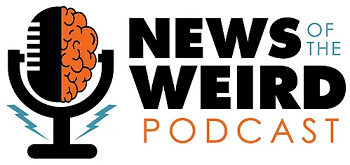
A powerful marketing strategy is built on an invisible foundation that is comprised of marketing tools. There are hundreds, if not thousands, of different tools available for use in online marketing, and some of them are expensive, difficult to use, and tough to effectively execute.
In the event that you are the proprietor of a little organization, the expense of these tools might feel overwhelming, and it may be challenging to select the tool that is the most suitable for your marketing endeavors.
We have compiled a selected list of the marketing tools that you will require, organized according to the marketing category.
Despite the fact that this is not an exhaustive list, it is a well-considered compilation of tools that are at the top of their respective categories, are either inexpensive or free, and have the potential to expand along with your company over time.
Essential Tools for Every Marketing Campaign
In today’s digitally-driven world, the success of any marketing campaign hinges on the effective use of tools and technology.
With a plethora of options available, marketers face the challenge of selecting the right tools to streamline their efforts, maximize ROI, and achieve their campaign goals.
From analytics to automation, here’s an in-depth exploration of the essential tools vital for every modern marketing campaign.
1. Analytics Platforms
Understanding user behavior and campaign performance is fundamental. Tools like Google Analytics, Mixpanel, or Adobe Analytics provide invaluable insights into website traffic, user engagement, conversion rates, and more.
These platforms enable marketers to make data-driven decisions, optimize strategies, and track the effectiveness of their campaigns in real-time.
2. Social Media Management Tools
The omnipresence of social media demands a strong presence across platforms. Tools such as Hootsuite, Buffer, or Sprout Social assist in scheduling posts, monitoring engagement and social media ads, and analyzing social metrics.
They streamline content distribution, facilitate audience interaction, and aid in maintaining a consistent brand voice across channels.
3. Email Marketing Platforms
For many people, email is still a good way to talk to someone directly. Platforms for marketing like MailChimp, Constant Contact, and HubSpot let marketers make visually appealing emails, divide audiences into groups, run campaigns automatically, and keep an eye on success indicators like open rates and click-through rates. This makes it easier to personalize and send messages that are more likely to be useful.
4. Content Management Systems (CMS)
It is essential to have a dependable content management system (CMS) in order to have a strong presence online.
For efficient management of website content, WordPress, Drupal, or Wix are all excellent options because they include user-friendly interfaces, templates that can be customized, and plugins.
These platforms give marketers the ability to produce and publish content that is engaging without requiring a significant amount of technological experience.
5. Search Engine Optimization (SEO) Tools
To enhance online visibility and organic traffic, SEM and SEO services uses tools like SEMrush, Moz, or Ahrefs are indispensable.
These tools aid in keyword research, backlink analysis, on-page optimization, and competitor analysis, helping marketers to refine their strategies for better search engine rankings.
6.Customer Relationship Management (CRM) Software
Building and nurturing customer relationships is vital. CRMs like Salesforce, HubSpot CRM, or Zoho CRM centralize customer data, track interactions, and automate workflows.
They streamline lead management, improve customer segmentation, and enable personalized communication at scale.
7. Marketing Automation Platforms
Efficiency in marketing operations is achievable through automation tools like Marketo, Pardot, or ActiveCampaign.
Marketers can automate repetitive tasks, create personalized workflows, and lead nurturing sequences, saving time while delivering targeted and timely content to prospects.
8. Graphic Design and Visual Content Tools
Compelling visual content is a cornerstone of modern marketing. Tools like Canva, Adobe Creative Cloud, or Piktochart empower marketers to create stunning graphics, infographics, and videos without extensive design skills, enhancing brand storytelling and engagement.
9. Pay-Per-Click (PPC) Advertising Platforms
For immediate visibility and targeted advertising, PPC platforms like Google Ads, Bing Ads, or Facebook Ads are essential.
These tools allow marketers to set budgets, create ad campaigns, target specific demographics, and measure ad performance with precision.
10. A/B Testing and Optimization Tools
Optimizing campaigns requires experimentation. Tools such as Optimizely, Google Optimize, or VWO facilitate A/B testing of various elements like headlines, CTAs, or layouts.
Marketers can identify high-performing variations to refine their strategies and maximize conversions.
11. Project Management and Collaboration Tools
Effective teamwork and project management are crucial for campaign success. Tools like Trello, Asana, or Monday.com streamline task allocation, progress tracking, and collaboration among team members, ensuring seamless execution and timely delivery of marketing initiatives.
12.Live Chat and Customer Support Tools
R eal-time customer support is paramount. Tools like Intercom, LiveChat, or Zendesk Chat enable instant communication with website visitors, addressing queries, and providing assistance, thereby improving customer satisfaction and conversions.
13. Influencer Marketing Platforms
Collaborating with influencers can amplify brand visibility and credibility. Tools like Influencity, AspireIQ, or Traackr aid in identifying, managing, and analyzing influencer partnerships.
These platforms offer insights into influencer reach, engagement, and audience demographics, facilitating effective influencer selection and campaign measurement.
14. Heatmap and User Behavior Analysis Tools
Understanding how users interact with your website is vital. Tools like Crazy Egg, Hotjar, or Lucky Orange provide heatmaps, click tracking, and user session recordings.
Marketers gain valuable insights into user behavior, identifying areas for optimization, improving user experience, and increasing conversion rates.
15. Mobile Marketing Platforms
Given the prevalence of mobile devices, optimizing marketing efforts for mobile is essential. Platforms like AppsFlyer, Braze, or Leanplum assist in mobile app analytics, user segmentation, push notifications, and in-app messaging, enabling tailored and engaging experiences for mobile users.
16. Voice Search Optimization Tools
With the rise of voice-assisted devices, optimizing for voice search is becoming crucial. Tools like SEMrush Voice Search Analytics or AnswerThePublic provide insights into voice search queries and trends.
Marketers can tailor their content strategies to align with voice search behavior, improving visibility in this evolving landscape.
17. Customer Feedback and Survey Tools
Gathering feedback directly from customers is invaluable. Tools like SurveyMonkey, Typeform, or Qualtrics enable the creation and distribution of surveys to collect insights and opinions.
Marketers utilize this feedback to refine products/services, tailor marketing strategies, and enhance overall customer satisfaction.
18. Social Listening and Brand Monitoring Tools
Monitoring brand mentions and sentiment across social media and the web is essential for brand reputation management.
Tools like Brandwatch, Mention, or Socialbakers track brand mentions, sentiment analysis, and industry trends.
Marketers leverage this data to engage with audiences, address issues proactively, and capitalize on positive brand sentiment.
19. Video Marketing and Analytics Tools
Video content continues to dominate digital marketing. Platforms like YouTube Analytics, Vidyard, or Wistia provide insights into video performance, viewer engagement, and audience behavior.
Marketers leverage these tools to optimize video content, refine strategies, and drive engagement across various video channels.
20. GDPR Compliance and Data Security Tools
Ensuring compliance with data protection regulations is crucial. Tools like OneTrust, TrustArc, or Cookiebot aid in managing data privacy, consent, and compliance requirements.
Marketers prioritize data security and transparency, building trust with customers while adhering to legal obligations.
Conclusion
To be successful in the ever-changing field of marketing, it is essential to make use of the appropriate tools. Each tool serves a distinct function, contributing to various aspects of a marketing campaign.
These aspects include consumer engagement and campaign optimization, as well as data analysis and content production from the perspective of the marketing campaign.
Marketers are able to traverse the complexity of the digital arena, drive meaningful interactions, and achieve their campaign objectives with finesse if they make efficient use of these important tools and harness their potential.


